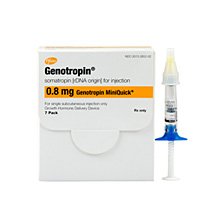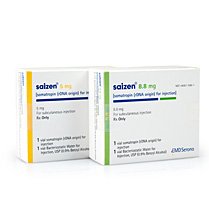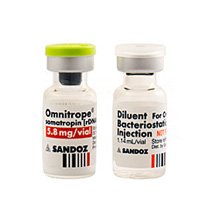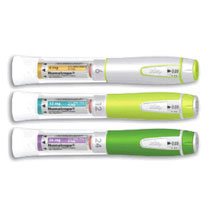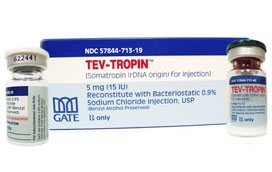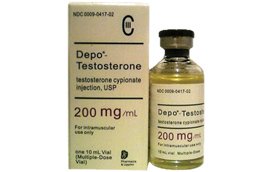What is Testosterone Therapy and Who Needs It?

Discovering that you have a low testosterone level does not mean you need testosterone replacement therapy (TRT), but having Low T along with symptoms may. What is testosterone therapy and who can benefit from this treatment?
TRT is a medically prescribed treatment that increases the level of testosterone in the bloodstream of men and women whose bodies are no longer producing enough of this hormone to satisfy the need of a series of systemic androgen receptors. Testosterone receptors can be found in the brain, tissues, and throughout the body.
You may be a candidate for testosterone therapy replacement treatments if you notice any of the following changes:
- Fatigue
- Weight gain
- Joint pains
- Stiffness
- Muscle loss
- Foggy headedness
- Poor memory
- Impaired cognitive functions
- High cholesterol
- Hair loss or thinning
- Low libido
- Depression
- Mood changes
- Anemia
Men and women experience Low T at different times, and the treatment options also vary:
- Testosterone Therapy for Women
Most females who develop Low T do so around menopause when the ovaries stop producing crucial hormones such as progesterone, testosterone, and estrogen. Since progesterone is the source for testosterone, this becomes a serious problem. Low testosterone levels cause all the typical signs of menopause, and treatment with compounded testosterone cream is the ideal option for females. A doctor (always seek the expertise of a hormone replacement specialist) will run diagnostic blood tests measuring various hormone and other levels before prescribing testosterone therapy for women.
- Testosterone Therapy for Men
Testosterone levels in males begin to decline around the early thirties. The decrease is slow – only about one to two percent a year. While the body should adjust naturally to this change, that is not always the case. Testosterone therapy for men is helpful when Low T symptoms begin to impact daily activities. For example, if you notice that work productivity is down, or if you are depressed, not interested in sex, or are avoiding social activities, chances are you have testosterone deficiency.
Options for testosterone therapy for males include:
- Testosterone injections
- Testosterone gel
- Testosterone patches
- Transbuccal testosterone tablets
- Implantable testosterone pellets
Testosterone Therapy Contraindications and Safety Concerns
Testosterone therapy is not the right choice for everyone. As a form of hormone replacement therapy, testosterone is safer than estrogen, but testosterone therapy contraindications still exist. You should not take testosterone therapy if any of the following apply:
- Active cancer
- Blood clots
- Chronic liver or kidney disease
- Chronic lung disease
- Pregnant
- Breastfeeding
Is testosterone therapy safe after finishing cancer treatment?
Most people can safely receive testosterone therapy treatment once approved by their oncologist. Abundant research has already dismissed the increased risk of prostate cancer following treatment with testosterone. The other issue also proven false is that of an increased risk of cardiovascular events. In fact, testosterone therapy improves many of the issues leading up to diabetes, osteoporosis, cardiovascular disease, dementia, and atherosclerosis.
Is testosterone therapy dangerous to take without doctor approval?
Yes, as with all hormones in the body, maintaining the natural balance is crucial. This cannot be done without the doctor first running blood tests to assess these hormone levels.
How Do I Get Testosterone Therapy?
Testosterone therapy doctors are specialists in the field of hormone replacement. They understand how one hormone interacts with others, and know what it takes to bring balance back to these critical chemical levels.
When searching testosterone therapy near me, many people focus only on doctors in their area, not realizing that they can turn to a national clinic such as Greenberg Health that has more experience dealing with adult hormone balancing than many local practitioners. That is because hormone replacement is all we do. Our doctors and medical staff work with men and women throughout the US every day, arranging for local blood tests, reviewing test and physical examination results, and determining affordable treatment options that will safely increase testosterone levels in the body.
Is testosterone therapy covered by insurance?
This is not a question we can answer because every insurance policy is different. Some companies may cover certain aspects, such as the physical examination if you visit your primary care provider. We recommend speaking directly with one of our clinic advisors as well as your own insurance carrier to discuss what might be covered.
Is testosterone therapy expensive to use?
Although what seems expensive to one person may be cheap to another, overall, testosterone replacement is one of the most affordable forms of hormone replacement. Some options, such as testosterone patches, gels, tablets, and pellets are more costly than injectable testosterone. Testosterone cream for women is very low in cost.
Greenberg Health will work with you to find an option that suits your financial requirements so that you can begin the best possible testosterone therapy. Call us today for a free consultation.


















 Norditropin
Norditropin